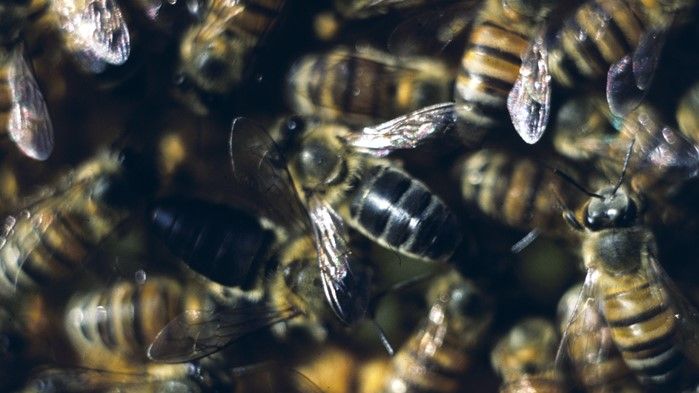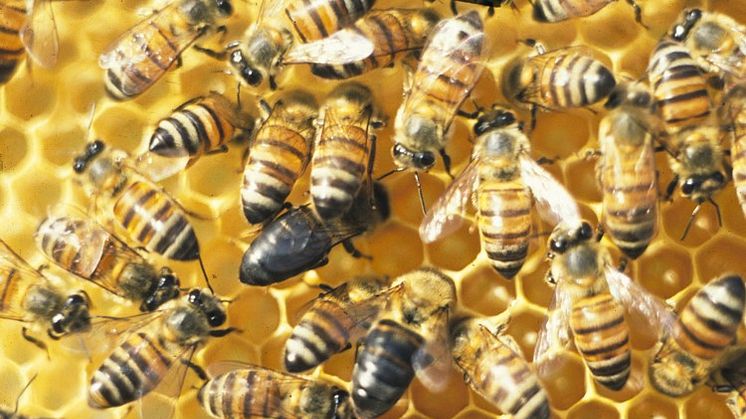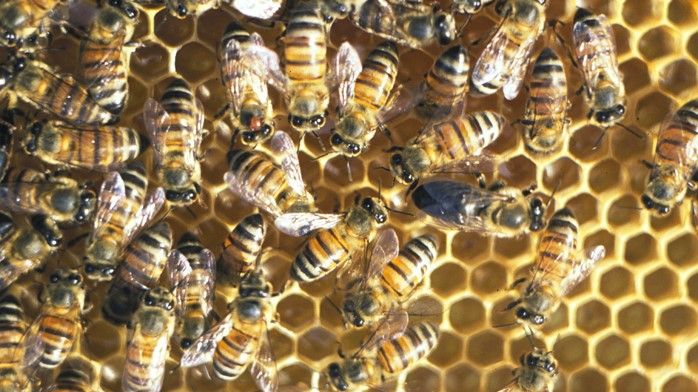Press release -
How honeybees do without males
An isolated population of honeybees in South Africa, the Cape bees, has evolved a strategy to reproduce without males. A team of researchers at Uppsala University and in South Africa has sequenced the entire genomes of a sample of Cape bees and compared them with other populations of honeybees to find out the genetic mechanisms behind their asexual reproduction.
Most animals reproduce sexually, which means that both males and females are required for the species to survive. Normally, the honeybee is no exception to this rule: the female queen bee produces new offspring by laying eggs that have been fertilised by sperm from male drones. However, one isolated population of honeybees living in the southern Cape of Africa has evolved a strategy to do without males.
In the Cape bee, female worker bees are able to reproduce asexually: they lay eggs that are essentially fertilised by their own DNA, which develop into new worker bees. Such bees are also able to invade the nests of other bees and continue to reproduce in this fashion, eventually taking over the foreign nests, a behaviour called social parasitism.
The explanation for this unique behaviour is unknown, however a research team from UU has come closer to uncovering the genetic mechanisms behind it. The team sequenced the entire genomes of a sample of Cape bees and compared them with other populations of honeybees that reproduce normally. They found striking differences at several genes, which can explain both the abnormal type of egg production that leads to reproduction without males, and the unique social parasitism behaviour.
‘The question of why this population of honeybees in South Africa has evolved to reproduce asexually is still a mystery. But understanding the genes involved brings us closer to understanding it. This study will help us to understand how genes control biological processes like cell division and behaviour. Furthermore understanding why populations sometimes reproduce asexually may help us to understand the evolutionary advantage of sex, which is a major conundrum for evolutionary biologists, says Matthew Webster’, researcher at the Department of Medical Biochemistry and Microbiology at Uppsala University.
For more information, please contact:
Matthew Webster, researcher at the Department of Medical Biochemistry and Microbiology at Uppsala University and Scilifelab, tel: + 46 (0)18 471 4391, e-mail: matthew.webster@imbim.uu.se
Andreas Wallberg, Christian W. Pirk, Mike H. Allsopp, Matthew T. Webster. Identification of multiple loci associated with social parasitism in honeybees. PLOS Genetics (in press)
Science for Life Laboratory (SciLifeLab) is a Swedish national centre for molecular biosciences with the focus on health and environmental research. The centre combines advanced technical know-how and state-of-the art equipment with a broad knowledge of translational medicine and molecular bioscience.
Topics
Uppsala University -- quality, knowledge, and creativity since 1477
World-class research and outstanding education of global benefit to society, business, and culture.
Uppsala University is one of northern Europe's highest ranked academic institutions. www.uu.se



